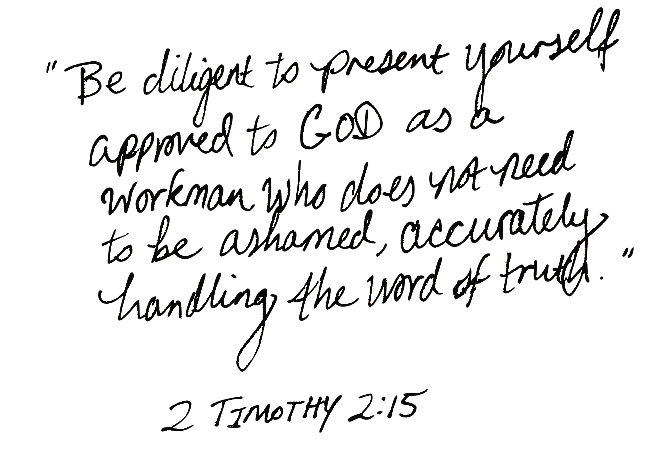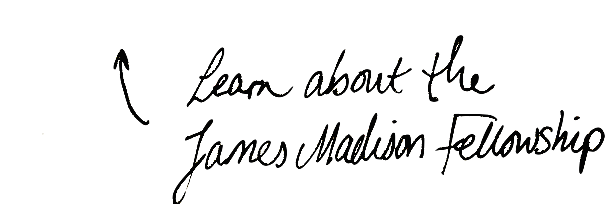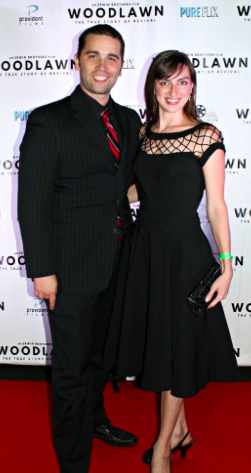This interview is one of my fondest memories. Enjoy this introduction to one of the most winsome and challenging intellects of our day.
One British writer at The Times dubbed him “Christianity’s new poster boy.” Who is this Oxford professor of mathematics who challenges Stephen Hawking’s assertions about God, and what does science have to do with politics?
BIRMINGHAM, Al. August 3, 2011 — On July 20th, Oxford Professor of Mathematics and Christian John Lennox debated the existence of the Biblical God with Princeton University Bio-ethicist and atheist Peter Singer in Melbourne, Australia.
It was Lennox’s second event this year with Fixed Point Foundation, an Alabama-based organization dedicated to defending Christianity in the public square.
In June, Fixed Point held the “In the Beginning” conference in Birmingham, Alabama on the topic of the days of creation in Genesis. John Lennox spoke at the conference along with fellow scientists Hugh Ross (astrophysicist), Michael Behe (biochemist) and Terry Mortenson (geological historian and theologian).
During the conference week John Lennox had a moment to sit down with me for an interview. It was a drizzly Friday morning in Birmingham when my father and I arrived at Latimer House, Fixed Point’s headquarters.

A MOMENT AT LATIMER HOUSE: Amanda Read interviews John Lennox (photo by Gilbert Lennox).
We had visited it before when Lennox was speaking there in October 2010, the evening the front room of the building was dedicated as the “Lennox Commons” in his honor. To my surprise, Lennox remembered meeting me. Perhaps he recalled chatting in Russian with my father.
Lennox lives in the countryside near Oxford, England. He and his wife Sally have three grown children and four grandchildren. Lennox is the elder brother of Gilbert Lennox (senior pastor of Glenabbey Church in Belfast, Northern Ireland) and uncle of singer and songwriter Kristyn Getty (Gilbert’s daughter). He travels the world participating in lectures and debates regarding the interface of science, philosophy and theology.
Readers might remember his brief appearance in Expelled: No Intelligence Allowed, a documentary by Ben Stein that explores academic discrimination against critics of Darwinian theory.
I asked Lennox first about his participation in the current conference. Was the topic at hand more so a scientific debate or a theological debate?
“Well, it depends what country you’re in,” Lennox observed. “The young earth/old earth controversy is virtually nonexistent in Europe because the number of Christians who would take a young earth view is very tiny. Over here it’s a bit different.”
“One of the things I did to hopefully defuse the tension in this conference was to raise an old controversy,” said Lennox, as he proceeded to explain another concept that historically challenged believers and unbelievers alike – not the origin of the Earth, but the movement of it.
“For centuries scientists believed that the earth did not move, and they found Biblical support for it. And then suddenly…Copernicus and Galileo say, ‘Well, the earth does move’ – and it’s resisted, not simply by the church who thought that was what the Bible taught, but by the philosophers, who thought that was what nature taught.
“And then you get this time of tension, when you’ve got fixed-earthers and moving-earthers, you see. And then gradually people begin to see on the one hand that the scientific evidence is very strong, and secondly, you can interpret the Bible in terms of a fixed-earth, but you don’t have to. There are other interpretations that make more sense…
“…Somebody who held on to the old science would find themselves adrift just as much as somebody who held on to the previous interpretation of the Bible. So interpretations have changed, without compromise with the authority of Scripture, and that’s what I wanted to get across.”
At this point I mentioned to him that in some ways, it’s not about compromise, it’s about comprehension.
“That’s a very good way of putting it,” Lennox replied. “That’s an extremely good way of putting it. It is about comprehension, and it’s about the humility in admitting that, ‘Well look, the facts are there, but my interpretation might be wrong.’”
He explained that as a scientist, he is very aware of how this parallels the way our understanding of the natural world has changed over time.
“So, we accept the advances and we think we’re getting nearer and nearer,” said Lennox, “but don’t let me mistake my interpretation as necessarily the truth, and that danger is on the Christian side that causes very unfortunate behavior that in the end, the world looks at it and says, ‘Well if that’s Christianity, I’m not interested,’ and I understand that.”
What one notices about Lennox in both his writing and speaking is that he is free from petty labels, beholden to no one. He is a gentleman (an Australian audience member of last month’s debate described him as “grandfatherly”), and his humility sets him apart in the crowd of otherwise shrill, arrogant voices debating faith, science and godlessness.

HUMBLE GENTLEMAN: Lennox joins the panel of Australia’s Q&A talk show with humanist social commentator Eva Cox, Islamic sociologist Susan Carland, broadcaster John Safran and Biblical scholar Jacqueline Grey. That episode garnered the most national views on Australian TV that night.
Lennox has a good reason for being sensitive to the danger of irrational, harmful conflicts over ideas. Among the first things students said to him at Cambridge was, “Do you believe in God? Oh I’m sorry, you’re Irish; all you people believe in God and you fight about it.”
Lennox was raised by non-sectarian Christian parents in Northern Ireland, and he mentioned in his recent debate with Singer that they loved him enough to allow him to think for himself. From there began his academic journey into mathematics and the philosophy of science.
Lennox was attracted to studying mathematics and languages early on (he speaks several, including Russian, French and German). He credits good teachers in those fields with encouraging him in that direction.
Lennox originally hoped to become an electrical engineer, but changed plans when his headmaster told him he had a chance of getting into Cambridge if he pursued mathematics instead.
While a student at Cambridge in 1962, Lennox attended the last lectures of English professor C.S. Lewis, the celebrated Christian thinker and Irish native to whom Lennox is now often compared.
He remembers that it was a very cold winter, and a well-bundled Lewis (“he was a big fellow, about my size”) would burst into the “absolutely packed lecture room” (people were even sitting on the floor and in the windows), teaching the class the instant he walked through the door.
“By the time he got to the podium he was going full blast,” Lennox recalls. “And when he finished, he reversed the process. He would put on his scarf and hat and his last words were uttered when he went out the door.”
Cambridge gave Lennox ample opportunity to study worldviews beyond the Christianity of his Irish family home. Once a Nobel Prize winner told Lennox that if he planned to make science his life’s work, then he better give up his ideas about God. Respectfully undaunted, Lennox wondered: What have you got that is any better than what I have?
His interest in atheism was piqued.
Upon getting an Alexander von Humboldt fellowship to study at West Germany, Lennox began frequently traveling Eastern Europe during the Cold War era. He was interested in talking to people who had experienced life under Marxist, communist regimes. Lennox also learned Russian and worked as a translator of Russian mathematics.
After the fall of the Berlin Wall (which he even helped to knock down a little), Lennox spent time in Russia. There, he often visited the Russian universities and academies of science, quite interested in seeing firsthand the “effect of systematic exposure to atheist indoctrination over the preceding seventy years” and reasoning with others about the subject.
Lennox earned doctorates from Oxford, Cambridge and the University of Wales and is now a Professor of Mathematics in the University of Oxford and Fellow in Mathematics and Philosophy of Science (and Pastoral Advisor) at Green Templeton College, Oxford.
Never did anything in his broad studies convince Lennox that abandoning God was an inevitable result of scientific inquiry or necessary for scientific advancement.
In fact, he became convinced of quite the opposite.
To cite an illustration Lennox is fond of using, understanding the principles of internal combustion running a Ford motor car does not eliminate Henry Ford as an explanation for its existence. Neither does understanding how the natural world works eliminate the explanation of a designer behind it.
Thus, the debate over whether or not accepting science eliminates God is ultimately an issue of scientists’ own preconceived worldviews, not something proven by data.
Also, it was the Christian belief in an intelligent Creator and intelligible universe that “de-deified” the universe and paved the way for modern science. If anything, ardent atheism might take science backward to the immature reasoning of pantheistic societies.
In his book God’s Undertaker: Has Science Buried God?, Lennox observes that “[p]erhaps there is a subtle danger today that, in their desire to eliminate the concept of a Creator completely, some scientists and philosophers have been led, albeit unwittingly, to re-deify the universe by endowing matter and energy with creative powers that they cannot be convincingly shown to possess. Banishing the One Creator God they would then end up with what has been described as the ultimate in polytheism – a universe in which every particle has god-like capacities” (pg. 51).
This brings us to the topic of world-famous physicist Stephen Hawking, who made headlines for claiming in his book with Leonard Mlodinow that “[b]ecause there is a law such as gravity, the universe can and will create itself from nothing.”
“And that to my mind is utterly illogical at three simultaneous levels, which is something I’ve never met before,” Lennox told me. “Because there is a law of gravity, the universe will create itself from nothing? But a law of gravity’s not nothing, and a law of gravity would be meaningless if gravity didn’t exist, because you can’t have laws unless you’ve a universe. What are the laws?”
Furthermore, Lennox pointed out that while laws (“our codifications – often in mathematical form – of repeated, repeatable eventualities”) describe things, they don’t actually create or cause anything. The laws of mathematics do not create extra money in your bank account.
As an example, Lennox offered, “Newton has a law of motion which is very famous and you can deduce from it (and it’s something one loves doing – it’s beautiful mathematics) that the planets move around the sun in elliptical orbits.
“But Newton’s law of motion never caused anything to move in the history of the universe. Newton’s law will describe, roughly speaking, what happens to a billiard ball if you hit it for the first bounce or two…but it will never start the ball moving. Far less will it create the ball and the table.
“And Hawking seems to – and this is what staggers me, that as a scientist he will give these examples of laws and then say ‘because there is a law of gravity, the universe will create itself’ – and to say the universe will create itself, incidentally, is logical nonsense.
“If x creates y means you presuppose x in order to explain the existence of y, x creates x means you’re presupposing the existence of x to explain x, which is nonsense.
“Which simply shows – as I said in my book [God and Stephen Hawking: Whose Design is it Anyway?] – that nonsense remains nonsense even if a scientist says it.”
Hawking, who in 2009 retired from holding Isaac Newton’s old chair at Cambridge, also said that heaven is “a fairy story for people afraid of the dark.”
 Lennox quipped in response, “Well if you want a one liner to answer it, atheism is a fairy story for people afraid of the light.”
Lennox quipped in response, “Well if you want a one liner to answer it, atheism is a fairy story for people afraid of the light.”
On August 19th, Lennox will be discussing God and Stephen Hawking in Seattle, Washington at a free public lecture sponsored by the Center for Science and Culture at Discovery Institute and the Arts and Issues Task Force at Seattle’s Presbyterian Church.
However interesting this whole discussion is to me personally, I’m aware of some in the population who think it is a waste of time and are content to compartmentalize daily life away from intellectual debate.
Let the scientists have their views and the people in academia have their views. It doesn’t affect our lives. Why should we really care?
“Well that’s simply not true,” said Lennox. “In some areas. You see, the vast majority of scientific works, say in biology, is finding out how things work. And that has no real philosophical implications.
“But work on origins of the universe does because it’s the story into which people have to set their lives. And our concept of our past is what gives us identity. And that’s where the problem starts – where you get people regarding science as the only way of discovering truth.
“I want to say it is a way, a very powerful way, a very useful way – but it’s not the only way. If it were the only way, we’d have to close half the faculties in our universities for a start.
“But it is very important for me as a scientist to point out that science is limited, it doesn’t answer all the questions – and that’s why it’s been so successful, because it has limited itself.
“But a lot of people don’t realize that, and nowadays one of the biggest issues is the question of the value and status of human life. And I make the point – Einstein made it before – he said you can talk about the ethical foundations of science, but you cannot talk about the scientific foundations of ethics.
“Or to put it more simply, science will tell me that if I put cyanide in my grandmother’s tea, it will give her a pretty rough day. But science cannot tell me whether I should do it or not to get my hands on her property.”
He feels that Sam Harris’s assailment of this concept in The Moral Landscape: How Science Can Determine Human Values is a “very serious error,” and he deals with this in his new book Gunning for God: A Critique of the New Atheism.
Lennox, who has a MA in Bioethics from the University of Surrey, then touched on a social issue of great concern in politics – the sanctity of life for the unborn.
“Let’s take a human fetus. Some of my friends tell me ‘it’s just a clump of cells, why should you worry?’ But that’s the materialistic view. From where I said it is a clump of cells, of course, but they’re very specialized, and this is human life made in the image of God. That makes a great difference of how you regard it in terms of values.
“So, that kind of science is highly relevant, whereas the way the automated teller in your bank works – and the signal transmission and all involved – isn’t immediately relevant to these big ethical, moral, spiritual questions, sure.”
I am immediately reminded of that evening at Latimer House in late October, when the U.S. midterm elections were dominating media coverage (including the content of this column).
That night, I scribbled a few notes that could not possibly do justice to what Lennox so well articulated in his Irish accent then. But a strong impression of it remains:
We must pay attention to intellectual debate and engage the culture on these issues.
When we don’t wrestle with ideas developing at the academic level, the next thing we know is that they are being legislated upon us, while we’re left wondering where in the world they came from.
![]()
Watercolor portrait of Lennox is an original by Amanda Read.

















I think one of the main reasons that Christians don’t tend to face the secular science is because they have been taught that a person with a PhD is more knowledgeable and, therefore, not to be challenged. I am often frustrated when talking to my friends about the culture and begin hearing them quoting what they learned from a government school and/or a secular college. If challenged, they will usually point back to “the experts” or will simply look at me as though I am crazy for not accepting “proven science”. I am very glad I came across your articles and I look forward to the next one!
Thank you for the comment, Daniel! I appreciate your readership and welcome article suggestions.